Can Cats Eat Ferret Food? The Important Details You Need to Know
- 10 Apr 2025 15:09
As a cat parent, you might be wondering if it's okay for your feline friend to eat ferret food. After all, ferrets and cats are both carnivores, so how different can their diets really be? While it may seem harmless to let your cat nibble on some ferret food, the truth is that there are some important reasons why cats should not eat ferret food regularly. Let’s dive into why this is the case and what you should consider when it comes to feeding your cat. 🐱
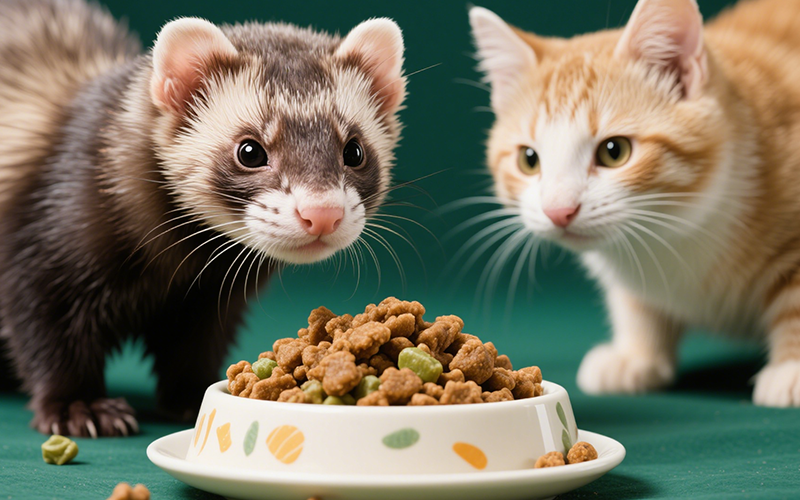
Why Cats Shouldn’t Eat Ferret Food
Although both cats and ferrets are obligate carnivores (meaning they rely on animal-based proteins), their nutritional needs differ. Here’s why ferret food isn’t ideal for your cat:
Higher Protein Content: Ferret food is specially formulated to meet the high protein needs of ferrets. While cats also need plenty of protein, ferret food is often too rich in protein for cats. High-protein diets can sometimes lead to kidney strain in cats if they consume it in excess over time. Cats need protein, but it should be balanced with the right amount of fats and other nutrients. 🐾
Unbalanced Nutrients: Ferret food typically contains higher levels of fat, which might be fine for ferrets but isn’t optimal for cats. While cats do need fat in their diet, consuming too much fat (especially from the wrong sources) can lead to obesity and other health issues. Additionally, ferret food may not provide the right amount of taurine, an essential amino acid that cats need for heart health, vision, and overall well-being. 🫀
Lack of Taurine: Taurine is a critical nutrient for cats and is essential for heart function, vision, and reproduction. Ferret food might not contain enough taurine in the right form or the right quantities that cats need. This can lead to serious health issues for your cat over time. 🐱
Different Digestive Needs: Cats and ferrets have slightly different digestive systems. Ferret food is designed to be easily digestible for ferrets, but it may not be as well-suited to a cat’s digestive system. Cats need a more balanced mix of fats, proteins, and specific nutrients, while ferret food might be too rich in certain areas. 🍽️
What Happens if Your Cat Eats Ferret Food?
If your cat sneaks a little bit of ferret food now and then, it’s likely not a major concern. However, feeding ferret food regularly can cause long-term health problems for your cat. Potential issues include:
Obesity: The higher fat content in ferret food can contribute to excessive weight gain if fed to your cat regularly. This can increase the risk of diabetes, arthritis, and other weight-related health problems.
Kidney Strain: Too much protein can put extra stress on your cat’s kidneys over time, potentially leading to kidney disease.
Digestive Upset: Your cat may experience stomach discomfort, diarrhea, or vomiting due to the rich ingredients in ferret food.
What Should You Feed Your Cat?
For your cat’s health, it’s best to feed them food that’s specifically formulated for their dietary needs. Here are some suggestions:
High-Quality Cat Food: Choose a nutritionally balanced cat food that is designed for their age, health, and activity level. High-quality commercial cat food will provide the right balance of protein, fat, and other nutrients that cats need.
Cooked Meat: If you’re looking to supplement your cat’s diet with something fresh, you can offer small amounts of plain, cooked meat, like chicken, turkey, or beef. Avoid adding seasoning, onions, or garlic, as these are toxic to cats. 🍗
Fish: Cats love fish, and a small amount of tuna or salmon (in water, not oil or brine) can be a tasty treat. Fish is high in protein and omega-3 fatty acids. 🐟
Cat-Specific Treats: There are plenty of cat treats available that are formulated to provide the right nutrients, and they can be a great way to offer your cat a tasty snack without compromising their diet. 🍖
Wet Food: Some cats prefer wet food, which can help keep them hydrated and provide more variety in their diet. Wet food often has a higher protein content and is more appealing to picky eaters. 🥣
What Should You Do If Your Cat Eats Ferret Food?
If your cat eats a small amount of ferret food, it’s unlikely to cause any immediate harm, but you should avoid letting it become a habit. Keep an eye on your cat for any signs of digestive upset, such as vomiting, diarrhea, or lethargy. If they eat a larger amount, especially over time, it’s a good idea to consult a pet health professional.
For peace of mind and quick support, PettureX can help! PettureX is an AI-powered pet health assistant offering 24/7 online consultations and pet image recognition, making it easy to get expert advice whenever you need it. 📱
Final Thoughts: Can Cats Eat Ferret Food?
In conclusion, while ferret food is not toxic to cats, it’s not an ideal or balanced option for their diet. Regularly feeding your cat ferret food can lead to health problems, including obesity, kidney strain, and nutrient imbalances. Always feed your cat food specifically formulated to meet their nutritional needs, and consider healthier alternatives like cooked meat or high-quality cat treats when you want to spoil them.
If you have any concerns about your cat’s diet or health, PettureX is a great tool for 24/7 consultations and personalized advice. It’s always there to help you ensure your cat is thriving! 😻
Related
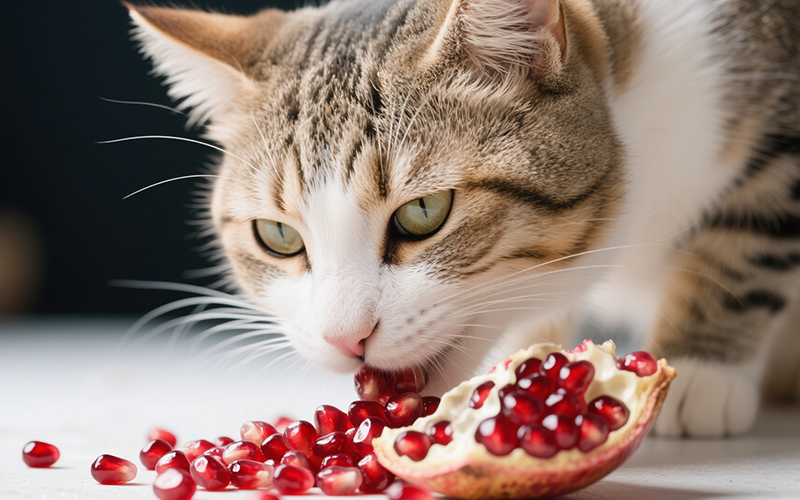
Pomegranate Peril: Can Cats Eat the Seeds Safely? A Vet-Reviewed Guide
- 25 Apr 2025
Prickly Problem: Can Cats Eat Pineapple Leaves Safely? A Vet-Reviewed Risk Analysis
- 25 Apr 2025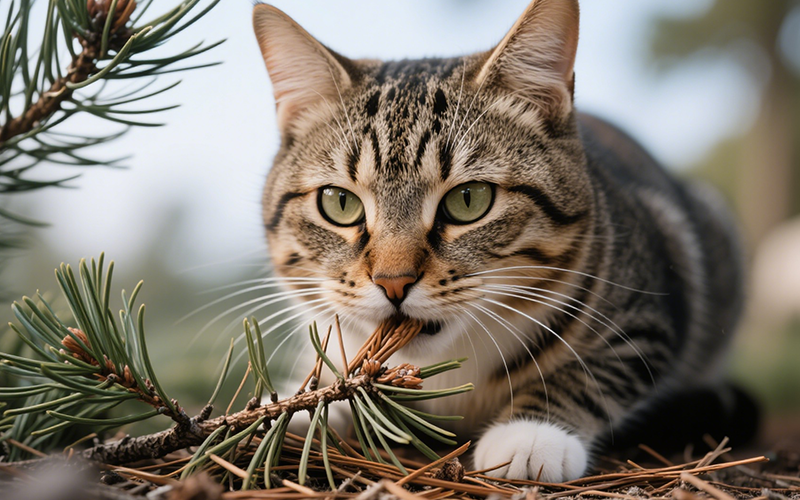
The Prickly Truth: Can Cats Eat Pine Needles Safely? A Guide for Concerned Owners
- 24 Apr 2025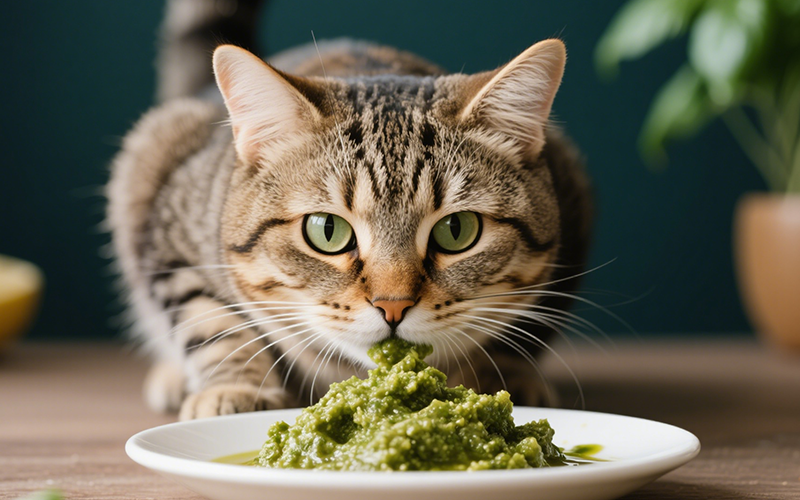
Pesto & Paws: A Dangerous Mix? Can Cats Eat Pesto Safely?
- 24 Apr 2025
Persimmons and Paws: Can Cats Safely Eat This Autumn Fruit? A Vet-Reviewed Guide
- 23 Apr 2025
Nutritional Yeast for Cats: Savory Sprinkle or Health Hazard? A Vet-Reviewed Guide
- 23 Apr 2025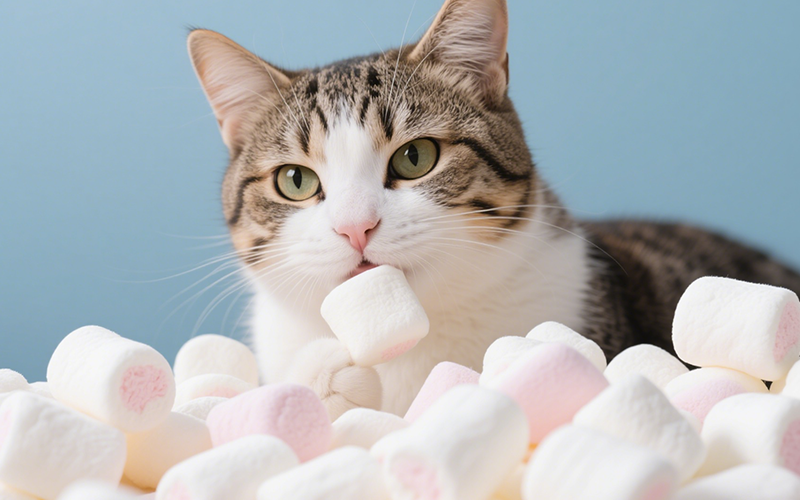
Marshmallows and Cats: A Puffy Problem? Why Vets Say No to This Sugary Snack
- 22 Apr 2025
Kefir for Kitties? A Veterinarian-Reviewed Guide to Safety, Benefits & Risks
- 22 Apr 2025
The Burning Question: Can Cats Eat Jalapenos? A Comprehensive Safety Guide
- 21 Apr 2025
Cool Temptation: Can Cats Eat Ice Cream Safely? The Vet-Backed Truth
- 21 Apr 2025
